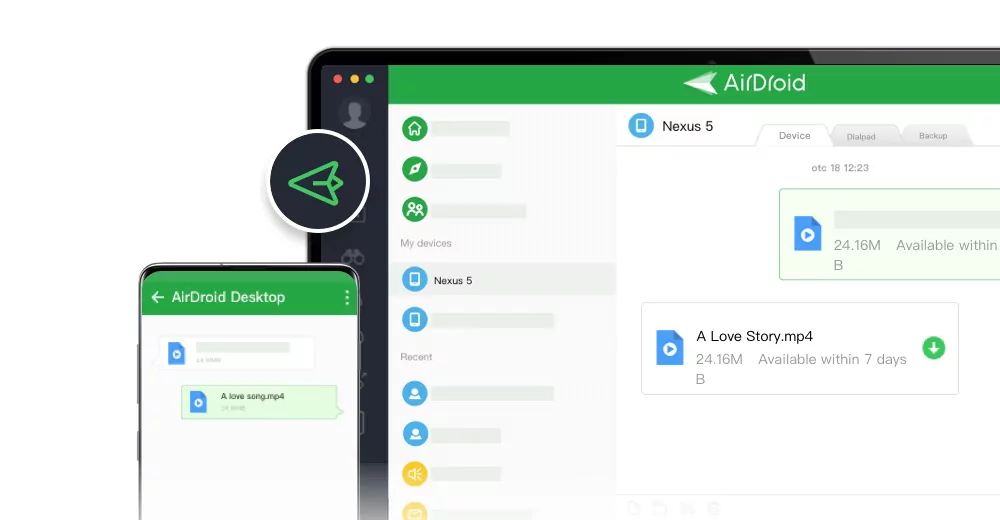12 Effective Time Management Tips for KIDS and PARENTS
Navigating the realm of parenthood is like embarking on a unique adventure. I'm a parent to two wonderful kids - a spirited six-year-old boy and a young princess who just turned three years.
Amidst the joys of parenting, I'm also an avid writer and a dedicated community volunteer. This journey of nurturing and growing while maintaining a multifaceted life has shown me that effective parenting involves not only tending to our children but also fostering a harmonious balance for ourselves.
One constant struggle stands out among the many challenges we encounter - managing time. Time management is the intricate thread weaving the fabric of our family's well-being and progress. Remarkably, even with my busy schedule, I find myself neither stressed nor overwhelmed. This balance can be attributed to the time management skills I've cultivated over time.

However, let's be realistic; these skills weren't magically acquired overnight. They evolved through a blend of patience, learning, and an honest evaluation of how I spend my time. This transformative process led me to a more streamlined, practical, and stress-free approach to managing our household and my personal time.
So, you might be curious - how exactly do I make it work? What time-tested tips have steered me through the intricate maze of parenting?
Well, here are some of my time management tips for kids and parents:
5 Essential Time Management Tips for Busy PARENTS

1. Embrace the Power of Routines
In the complex world of parenting, routines can be your saving grace. They provide structure amid chaos. Whether it's setting a regular wake-up time for the kids or designating specific times for meals and bedtime, routines offer predictability that helps both you and your children. This means fewer last-minute decisions and less mental fatigue.
In general, when it comes to routines, there are three key facets to keep in mind, which include:
- Structure: Routines offer predictability, thus comforting for kids and adults alike.
- Consistency: Stick to routines as much as possible, as consistency reinforces habits.
- Efficiency: Routines reduce decision fatigue and make it easier to manage tasks.
Now you see, the structure enables healthy continuity and interactions in your household.
2. Share the Load, Spread the Joy
Don't be afraid to share the household responsibilities with your partner and involve your kids too. Sharing the load means you're not carrying the weight all on your own, and it teaches your children valuable life skills.
And just like it is with routines, there are also four key points to note when it comes to sharing responsibilities:
- Open Communication: Discuss with your partner the tasks each of you can manage best.
- Delegation: Assign tasks based on individual strengths and preferences.
- Involvement: Get your kids engaged with age-appropriate chores; it instils responsibility and teamwork.
- Rewards: Introduce a reward system that motivates everyone to complete their tasks and celebrate together.
3. Work with To-do List
A good to-do list can be a powerhouse tool for time management. It helps you prioritize tasks, stay organized, and make the most of your time. Remember, you're handling kids, so if they lack a to-do list, they will tend to be chaotic since they don't know what to do next. Also, a to-do list makes routines effective and not dull.
The key facets that help me create an effective to-do list are:
- Weekly Planning: I ensure I have mapped out the main tasks I want to complete within that week. So, I advise you to start the week by listing all tasks, big and small, that need your attention.
- Task Grouping: Identify tasks that can be done together or in the exact location.
- Efficiency: Grouping tasks minimizes unnecessary trips and maximizes productivity.
4. Outsource Some Tasks
Laundry can consume a significant chunk of time, but you don't have to do it all yourself. Consider outsourcing specific tasks to regain precious time and reduce stress.
The benefits of outsourcing include:
- Time-Saving: Preparing meals can be time-consuming; consider using meal delivery services for convenience.
- Nutrition: Services like Nurture Life offer nutritious options for your kids, ensuring they get balanced meals.
- Quality Time: Outsourcing tasks allows you to spend more quality time with your family.
5. Plan Ahead to Avoid Last-minute Headaches
Planning becomes even more crucial when dealing with unpredictable situations (hello, newborns!). Make the most of those quiet moments to set the stage for smoother days.
For example, you should ensure you have an effective routine, collaborate with your partner and have an efficient start:
- Night-time Routine: Establish an evening routine that includes preparing lunchboxes and setting tasks for the next day.
- Collaboration: Communicate with your partner about your respective to-do lists to identify areas where you can support each other.
- Efficient Start: Waking up to an organized space and a clear plan sets a positive tone for the day ahead.
That's all for you; let's see what you can instil in your kids to help them to create good time management skills.
7 Essential Time Management Tips for KIDS
Navigating the ticking clock can pose a challenge for kids. The hustle between school and those after-school adventures can make time slip away.

That's why you need time management tips. These tips aren't just about homework; they're life tips that set them up for success as they venture into the world of responsibilities and opportunities.
1. Create Daily Schedule
Just like you need a schedule as a parent, kids also need it. This is one of the essential time management tips for kids.
Therefore, start by creating a daily schedule together. This schedule can visually represent their day, helping them allocate time for homework, play, meals, and bedtime. By involving your child in the planning process, they'll feel a sense of ownership over their time, making them more likely to stick to the routine.
2. Teach Them How to Measure Time
How can they manage time if they don't know how to measure it? – so start showing them how first.
It is essential that you keep in mind that time can be an abstract concept for kids. Therefore, introducing them to the art of measuring time by using timers and clocks is a fundamental step.
Set a timer during specific activities and offer verbal cues as the minutes tick by, helping them understand how different time segments feel. This builds their internal clock and enhances their time management skills.
3. Integration of Timers as Practical Tools
Employing timers is a productive technique for maintaining children's focus and structure. Imposing specific time limits for tasks or designated time blocks instils a discernible framework.
Should your child encounter difficulty sustaining concentration, the Pomodoro technique is a viable recourse—dedicating 25-minute intervals to tasks, succeeded by 5-minute intervals of respite. This methodology yields enhanced productivity and sustained engagement.
4. Break Tasks into Incremental Components
If tasks seem daunting, teach your child the power of breaking them into smaller parts; you can even do it together.
Whether it's homework or tidying their room, dividing tasks into manageable chunks prevents overwhelming tasks and promotes a step-by-step approach.
Therefore, you should consider the following points:
- Task Overwhelm: Divide large tasks into smaller, manageable parts.
- Step-by-Step: Focus on completing one part before moving on to the next.
- Sense of Progress: Achieving each smaller task encourages a sense of accomplishment.
Breaking tasks down prevents kids from feeling overwhelmed by the whole task.
5. Transform Time Management into a Fun Thing to Do
Time management can be fun and a more satisfying thing if done right.
Time management often feels like a grown-up's chore, entangled with car rides, endless appointments, and responsibilities. It's enough to make anyone want to toss the clock out the window in frustration. However, for kids, time management can be a delightful adventure. Here's how you can infuse fun into their journey:
- Earn Rewards: Motivate them with rewards for completing tasks on time, whether it's homework or chores.
- Sticker Celebration: Let them mark special days with colourful stickers on their calendar.
- Creative Calendars: Encourage them to use crayons to colour their calendars, making planning artistic.
- Task Challenge: Turn ordinary tasks into exciting challenges. Who can brush their teeth, put on their shoes, or pack their backpack the quickest? Make it a game and watch them manage their time like champions.
By transforming time management into a playful experience, you're helping your kids grasp its importance and instilling positive habits that will serve them well throughout their lives.
6. Start Before They Become Teens
Of course, your kids can also be taught time management tips and skills too. But remember, early exposure to time management lays a solid foundation.
And so, you should begin with simple tasks and short time blocks for pre-schoolers, gradually increasing complexity as they grow. This early initiation will make them comfortable and confident in managing their time as they progress to more demanding responsibilities.
7. Be a Role Model to Your Kids
How can they be good with time management if you're not? – Now you see why a good role model?
Remember, kids, learn from what they observe. Demonstrate effective time management by setting a positive example. Showcase how you manage time, prioritize tasks, and maintain a balanced lifestyle. When they see you value your time, they'll be more likely to emulate these habits.
Bottomline
Remember, these tips aren't about perfection but about finding what works best for your family. By incorporating the above time management tips, you'll find that you have more control over your time, leading to a better balance between the demands of parenthood and enjoying precious moments with your loved ones.






Leave a Reply.